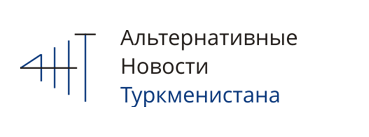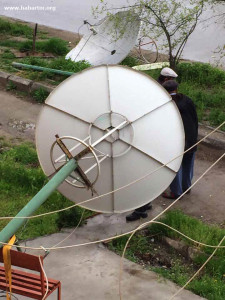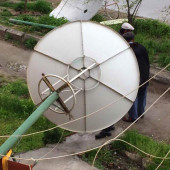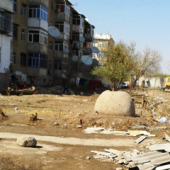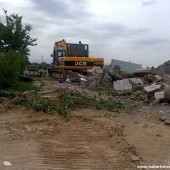19.04.2015 Civicsolidarity.org
Turkmenistan authorities have started a new campaign of demolishing satellite dishes, aiming at fully blocking independent access to international TV and radio.
The government of Turkmenistan has taken a decision to liquidate all privately owned TV and radio satellite dishes in the country, demanding all of them to be demolished, be they on apartment buildings or private houses, and fully prohibit their use. This information has come from governmental sources.
This decision is aimed at fully blocking access of the population of Turkmenistan to hundreds of independent international media outlets which are currently accessible in the country only through satellite dishes, including all leading international news channels in different languages. The main target of this campaign is Radio Azatlyk, the Turkmen-language service of Radio Liberty/Free Europe. It is the only independent source of information about Turkmenistan and the world in the Turkmen language and is widely listened to in the country. This radio is currently accessible to the Turkmen public through satellite dishes while other channels of independent information about Turkmenistan, including websites of human rights and dissident organisations as well as the web site of Radio Azatlyk are blocked in Turkmenistan.
Overwhelming majority of the Turkmen public is able to listen to independent radio and watch foreign television through satellites; all houses in the cities of the country are equipped with dishes, legally bought by people in the last 20 years. Dishes are quite affordable; a $100 dish provides free access to TV and radio content through a satellite. This has been a reaction of the society to the government censorship and propaganda on the official TV and radio.
The demolition campaign started in the end of March. There have been earlier attempts in the course of the last few weeks when the local authorities at the level of communal management demanded that people take down the dishes or they will be demolished. However, residents refused, relocating the dishes from the walls to the roofs and collectively organising neighborhood watch groups on the roofs to protect their property from demolition. When local authorities demanded that people uninstall the dishes they did not present any legal grounds and did not produce any official documents, just citing a decision of the superior authorities. Now the government has started to use a new tactic: seasonal workers hired by municipal authorities come during the day when residents are at work and destroy the dishes, breaking the equipment. In Ashgabat the satellite dish demolition campaign is going full speed now, and thousands of satellite dishes have been already destroyed in many districts of the city in the last two weeks.
As a “replacement” for the demolished satellite dishes, the authorities offer “cable TV packages”, which include mostly entertainment channels produced by Russia, Turkey, and India. All TV and radio channels offering news are excluded from these “packages”. Moreover, authorities publicly state their right to cut off the cable TV any time, as it already happened in 2011 when Internet was cut off after accidental explosions of military munition in Abadan. Internet access is fully controlled by the government through a single state-owned provider TurkmenTelecom.
All this “cable TV campaign”, besides being a direct violation of the right to access information, is also a state level piracy, as no official contracts with the content producers from Russia, Turkey or India have been signed. This is a violation of copyright.
The main argument used by the authorities to justify demolition of the dishes is that they “distort the architectural-urban image of the city.” In fact, this is not the first attempt of the government to get rid of private satellite dishes. In 2007 when Gurbanguly Berdymukhamedov just came to power, he demanded demolition of the dishes. It did not work out because of the strong criticism by the international community and media which referred to the initiative as a clear case of violation of the right to independent access to information and a form of censorship. The authorities resorted then to demolition of the dishes only along the main avenues of Ashgabat which serve as the official route of the President’s car and those of his guests. “The young president”, as Berdymukhamedov referred to himself at that time, did not dare to spoil his reputation and become an “enemy of the media.” The second attempt was made in the summer of 2011 when the authorities tried to suppress information about accidental explosions of military munition in Abadan causing death of many people, officially 15 and according to unofficial sources up to 1500. Again, only a vocal reaction by foreign media, international organisations, including the OSCE, and foreign governments, first and foremost the US State Department and the US Embassy in Ashgabat, forced the authorities to pull back and abandon their plans.
Experts believe that the authorities are now aiming at solving the problem of independent access to information through the satellite dishes for the third – and the last – time in anticipation of the next presidential elections scheduled for the beginning of 2017 to ensure full control over information. In addition, a major international sports event, the 5th Asian Indoor and Martial Arts Games, will be hosted by Ashgabat in 2017, and according to anonymous sources in the government, the authorities want to block any information about possible incidents during the Games. Judging by the active steps already taken in Ashgabat, the government is taking a more resolute position this time.
Should this new campaign be successful, Radio Azatlyk will lose almost all of its audience inside Turkmenistan. People do not own short-wave radios as in the Soviet times, and the internet version of Azatlyq will continue to be blocked. With its popularity which has grown recently, and its broad and professional coverage of important topics, including human rights, the problem of the disappeared in the Turkmen prisons, security concerns on the Southern border, demolition of houses, and more, Radio Azatlyk has been an indispensable source of independent information for people in Turkmenistan. Residents of the country fear that they will be completely cut off from independent information now.
Independent experts and human rights defenders believe that only a prompt and strong reaction of governments of democratic states and international organisations may stop this campaign. They should immediately engage in dialogue with the Turkmenistan government and explain to it that these actions are a direct and clear violation of internationally recognised right to access to information and it will have a huge detrimental impact on the prospects of engagement of Turkmenistan with the international community, including cooperation in energy and security areas.
